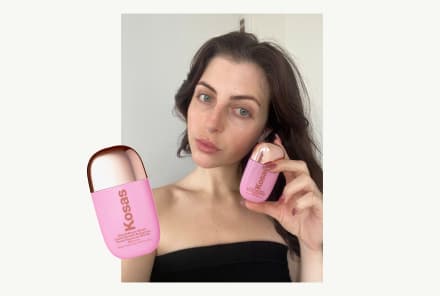Advertisement
4 Ways To Trick Yourself Into Using Less Plastic


Tom Szaky is a leading force in the sustainability world. The founder of TerraCycle, a company that finds ways to recycle hard-to-recycle items (think everything from snack wrappers to backpacks to sponges), Szaky made headlines most recently for, Loop, his new initiative that gives companies the option to sell their products in reusable packaging that can be collected, cleaned, and reused multiple times. So far, Unilever, Procter & Gamble Company, Coca-Cola, and PepsiCo, among others, have signed onto it. The combined reach of these corporations is obviously huge, so this innovation could prove game-changing when it pilots this spring.
If Szaky has anything to do with it, the end of single-use plastic packaging is near. Here, he busts some of the top myths standing in the way of the reusable economy he's helping to build:
Myth Busting #1: Single-use plastic packaging is usually the most convenient.
We've become so accustomed to the convenience of single-use plastics that sometimes it's hard to see how they're actually making our lives harder in some ways. For example, snacks wrapped in plastic are easy to eat on-the-go—but they also make us less likely to cook for ourselves, which is often the healthier choice.
Since our lives show no sign of slowing down, toting an insulated hot/cold beverage container to fill with water or your preferred hot beverage and keeping a zero-waste kit with eating utensils and durable straw will replace many pieces of single-use plastic when you are out and about. Set a reminder, or keep these items in your car or bag to ensure they are easily accessible and convenient to use.
Myth Busting #2: Single-use plastics are more hygienic than reusable packaging.
Time for a little history lesson: Post-WWII, companies started to run with ways they could replace durable items with things that consumers could buy again and again. One way they sold this new culture of consumerism was by saying the ability to dispose of a product after one use was not only more convenient but also more sanitary. This had huge implications for food, personal care, and beauty industries.
Hearkening back to the old days when we cleaned, stored, and otherwise cared for our products can help you become a more conscious consumer and save money in the process. Durable razors, washable cleaning cloths, and reusable cotton swabs and hygiene products can still easily fit into modern life.
Myth Busting #3: There's no comparable alternative to plastic in some cases.
Again, it's all about perspective. There are often viable alternatives that provide the same functions as single-use plastic with way less waste. Take your reusable water bottle: It replaces the need for bottled water, as all you really want is portable water. Why can't this be true of your soda, beer, or kombucha? Bottle returns are still alive and well in some states, and many premium health retailers like Whole Foods Market and Mom's Organic Market are bringing them back.
Even something as specific as cling wrap, the stuff used to wrap food and seal the tops of containers to prevent food waste, can be replaced by durable alternatives like beeswax wrap or durable silicone, which perform just as well, if not better, than their single-use counterparts.
Myth Busting #4: For differently abled people, single-use plastics are often essential.
Establishments, such as restaurants, can offer authentic hospitality while taking responsibility for the disposal of single-use plastics with recycling solutions.
As Alice Wong, a disability rights activist, aptly says about how the plastic straw ban disproportionately affects people with disabilities, "Everyone consumes goods and creates waste… We should recognize that different needs require different solutions." This is a complex issue, but things as simple as finding other ways to solve for plastic waste, such as doing away with plastic wrap, creating a robust internal recycling program, or offering both plastic and compostable straws, are ways to get everyone on an equal playing field and make sustainability accessible for everyone.
Watch Next
Enjoy some of our favorite clips from classes
Enjoy some of our favorite clips from classes
What Is Meditation?
Mindfulness/Spirituality | Light Watkins
Box Breathing
Mindfulness/Spirituality | Gwen Dittmar
What Breathwork Can Address
Mindfulness/Spirituality | Gwen Dittmar
The 8 Limbs of Yoga - What is Asana?
Yoga | Caley Alyssa
Two Standing Postures to Open Up Tight Hips
Yoga | Caley Alyssa
How Plants Can Optimize Athletic Performance
Nutrition | Rich Roll
What to Eat Before a Workout
Nutrition | Rich Roll
How Ayurveda Helps Us Navigate Modern Life
Nutrition | Sahara Rose
Messages About Love & Relationships
Love & Relationships | Esther Perel
Love Languages
Love & Relationships | Esther Perel











